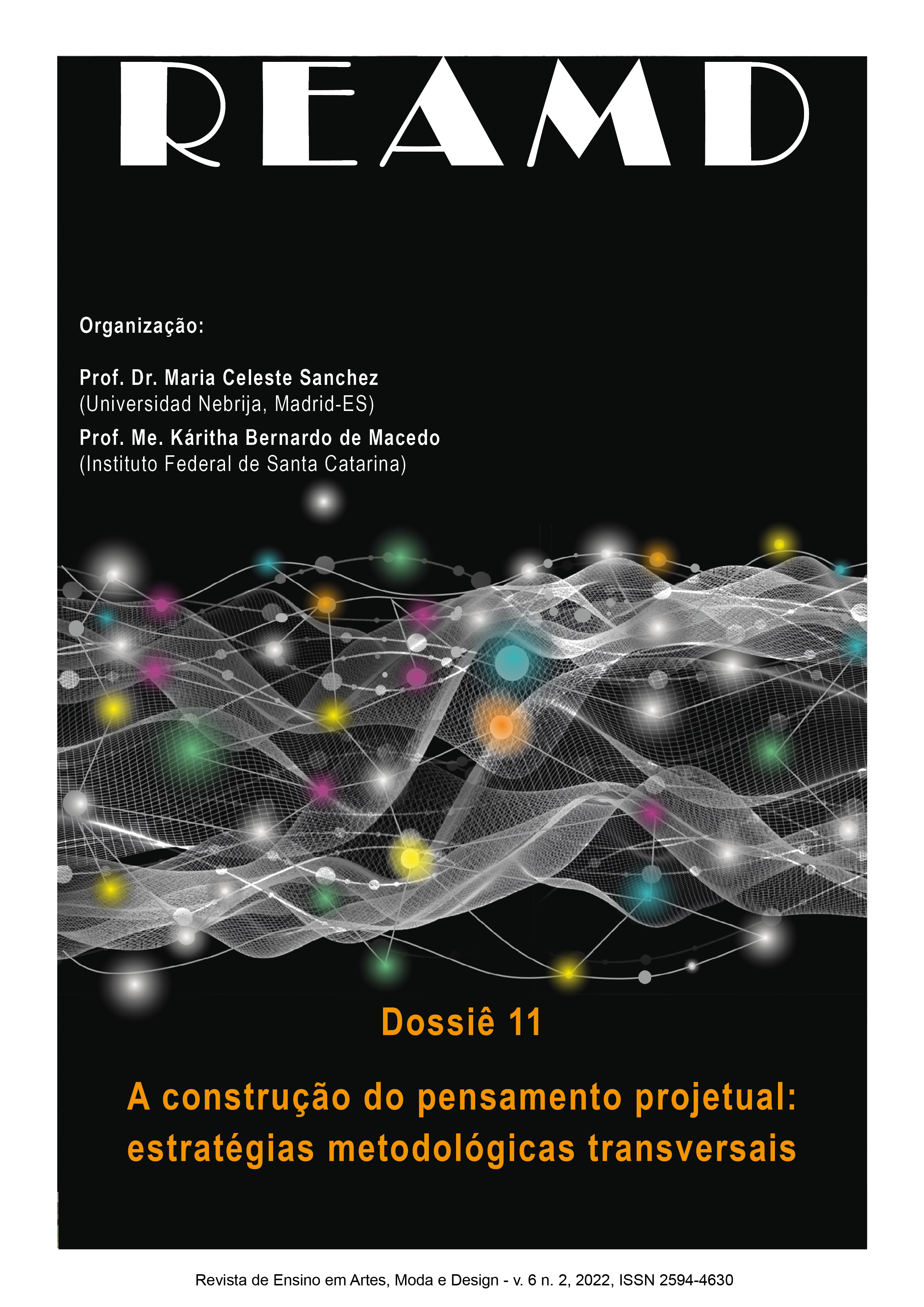Odisea L120: gamificación de la propuesta evaluativa en una asignatura de arte y nuevos medios
DOI:
https://doi.org/10.5965/25944630622022e1769Parole chiave:
Gamificación, Educación superior, Educación artísticaAbstract
El presente trabajo analiza la gamificación de la propuesta evaluativa elaborada durante el año 2020 en la materia Laboratorio I perteneciente a la Licenciatura en Artes Electrónicas de la Universidad Nacional de Tres de Febrero (UNTREF). Dicho laboratorio, se presenta como un espacio curricular inicial cuyo principal propósito es ofrecer una introducción a las artes electrónicas, la programación creativa y la experimentación artística. La propuesta evaluativa, denominada Odisea L120: la experiencia virtual, fue desarrollada como modo de superar las siguientes problemáticas: el bloqueo creativo ante la realización de un proyecto artístico en una instancia inicial de una carrera universitaria; el aislamiento producto de la emergencia sanitaria por COVID-19; la adecuación en función al tiempo necesario para la realización del proyecto; y la coherencia con los contenidos y la metodología trabajados en el curso. La propuesta implicó la realización de una tirada de cartas digital con diferentes elementos -visuales, materiales, sonoros y textuales- que funcionaron como disparadores para elaborar una producción artística de cierre de curso. La mecánica del juego se estructuró a partir de una narrativa de ciencia ficción, un conjunto de reglas y una dinámica colaborativa entre los participantes. La evaluación de la experiencia evidencia gran motivación entre los estudiantes y un foco particular en el trabajo conjunto producto del sistema de colaboraciones. Entre las principales conclusiones se establece que las estrategias propias del juego -tanto la apertura de posibilidades como la imposición de límites- resultan valiosas para estructurar instancias de creación artística.
Downloads
Riferimenti bibliografici
CONTRERAS, R., & EGUIA, J. L. (2016). Gamificación en aulas universitarias. Barcelona: Institut de la comunicació (InCom-UAB).
CSIKSZENTMIHALYI, M., & BENNETT, S. (1971). An Exploratory Model of Play. American Anthropologist. New series, 73(1), 45-58.
FLANAGAN, M. (2009). Critical play: radical game design. Cambridge: The MIT Press.
FLANAGAN, M. (2018). Critical play and responsible design. In The Routledge companion to media studies and digital humanities (pp. 183-194). Jentery Sayers, New York: Routledge, Taylor & Francis Group.
GROS SALVAT, B. (2014, enero-abril). Análisis de las prestaciones de los juegos digitales para la docencia universitaria. Revista Interuniversitaria de Formación del Profesorado, 28(1), 115-128.
GROYS, B. (2014). La soledad del proyecto. In Volverse público (pp. 69-82). Buenos Aires: Caja Negra.
LITWIN, E. (2005). La tecnología educativa en el debate didáctico contemporáneo. Litwin, E., Tecnologías educativas en tiempos de Internet. Disponible en: https://bit.ly/2VQdVQk
MAGGIO, M., LION, C., & PEROSI, M. V. (2014). Las prácticas de la enseñanza recreadas en los escenarios de alta disposición tecnológica. Polifonías: Revista de educación, III(5), 101-127.
REYES CABRERA, W. R., & Quiñonez Pech, S. H. (2020). Gamificación en la educación a distancia: experiencias en un modelo educativo universitario. Revista apertura, 12(2), 6-19.
SUTTON-SMITH, B. (2001 [1997]). The ambiguity of play. Cambridge: Harvard University Press.
VALVERDE BERROCOSO, J. (2011). Docentes e-competentes: buenas prácticas educativas con TIC. Barcelona: Octaedro.
WERBACH, K. & HUNTER, D. (2015). Gamification toolkit: dynamics, mechanics, and components for the win. [Epub], Boston: Wharton Digital Press.
Pubblicato
Come citare
Fascicolo
Sezione
Licenza
Copyright (c) 2022 Guadalupe Alvarez, Micaela Paz

TQuesto lavoro è fornito con la licenza Creative Commons Attribuzione 4.0 Internazionale.
- Gli autori conservano i diritti d'autore e concedono alla rivista il diritto della prima pubblicazione, con l'opera simultaneamente licenziata sotto la Licenza Creative Commons Attribuzione 4.0 Internazionale, la quale permette:
1. Condividere — copiare e ridistribuire il materiale su qualsiasi supporto o in qualsiasi formato, per qualsiasi fine, anche commerciale.
2. Adattare — remixare, trasformare e creare a partire dal materiale per qualsiasi fine, anche commerciale. Il licenziante non può revocare questi diritti finché vengono rispettati i termini della licenza.
In accordo con le seguenti condizioni:
1. Attribuzione — È necessario attribuire la paternità dell'opera in maniera appropriata, fornire un link alla licenza e indicare se sono state effettuate delle modifiche. Questo deve essere fatto in qualsiasi circostanza ragionevole, ma non in modo tale che suggerisca che il licenziante avalli l'utilizzatore o il suo utilizzo.2. Nessuna restrizione aggiuntiva — Non è possibile applicare termini legali o misure tecnologiche che limitino legalmente altri dallo fare qualsiasi cosa la licenza permetta.
-
Il plagio, in tutte le sue forme, costituisce un comportamento editoriale eticamente scorretto ed è inaccettabile. Questa rivista utilizza il software di controllo della similarità iThenticate.






